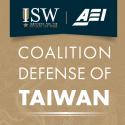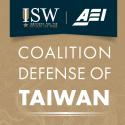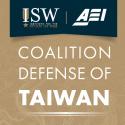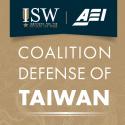China-Taiwan Weekly Update, June 6, 2025
Jun 6, 2025 - ISW Press
A senior Taiwanese official expressed concern that the People’s Republic of China (PRC) could use its influence over the Taiwanese entertainment sector to shape public opinion.

A senior Taiwanese official expressed concern that the People’s Republic of China (PRC) could use its influence over the Taiwanese entertainment sector to shape public opinion.

The People’s Republic of China (PRC) condemned the US Golden Dome space defense project for undermining global stability, despite the fact that the PRC has similarly invested in developing its military capabilities in space. Russia and North Korea issued similar criticisms, and altogether, space programs from these three countries may deny US access to space and space capabilities.

CCP General Secretary Xi Jinping paid an official visit to Moscow for the annual Russian Victory Day and used the opportunity to highlight the strategic partnership between the People’s Republic of China (PRC) and Russia.

The PRC is continuing to develop its ability to cut undersea cables, which it could use to coerce and isolate Taiwan. A likely PRC-operated vessel entered Taiwanese waters likely in order to refuel other PRC vessels, including those involved in cable-cutting around Taiwan.

Recall campaigns against 32 legislators in the KMT opposition advanced to the next stage. Successful recalls could shift the balance of power in the Taiwanese legislature to favor the ruling DPP.

The Taiwanese Central Election Commission (CEC) approved recall votes for 19 Kuomintang (KMT) legislators, which could diminish the influence of the opposition parties in the Legislative Yuan (LY)

Taiwanese civil society groups have now submitted recall petitions targeting 31 opposition Kuomintang (KMT) legislators and 13 legislators from the ruling Democratic Progressive Party (DPP). Recall efforts could shift the balance of power within the Legislative Yuan (LY) by reducing the KMT-led majority.

Taiwanese civil society groups are leading a large-scale recall campaign targeting legislators from the Kuomintang (KMT) opposition party. These recalls could erode the current KMT-led majority in the Legislative Yuan

The Chinese Nationalist Party (KMT) and Taiwan People's Party (TPP) pushed through new requirements on the Constitutional Court that will make it impossible for the court to carry out constitutional review until it fills some of its vacant seats. The KMT rejected all 7 of the ruling DPP’s judicial nominees to fill the vacancies, however, which makes it impossible for Lai to block legislation as long as the seats are unfilled.

Xi and Biden agreed not to integrate artificial intelligence (AI) into nuclear weapons control systems, signaling Beijing’s willingness to implement guardrails in issues about which it has previously been noncommittal.